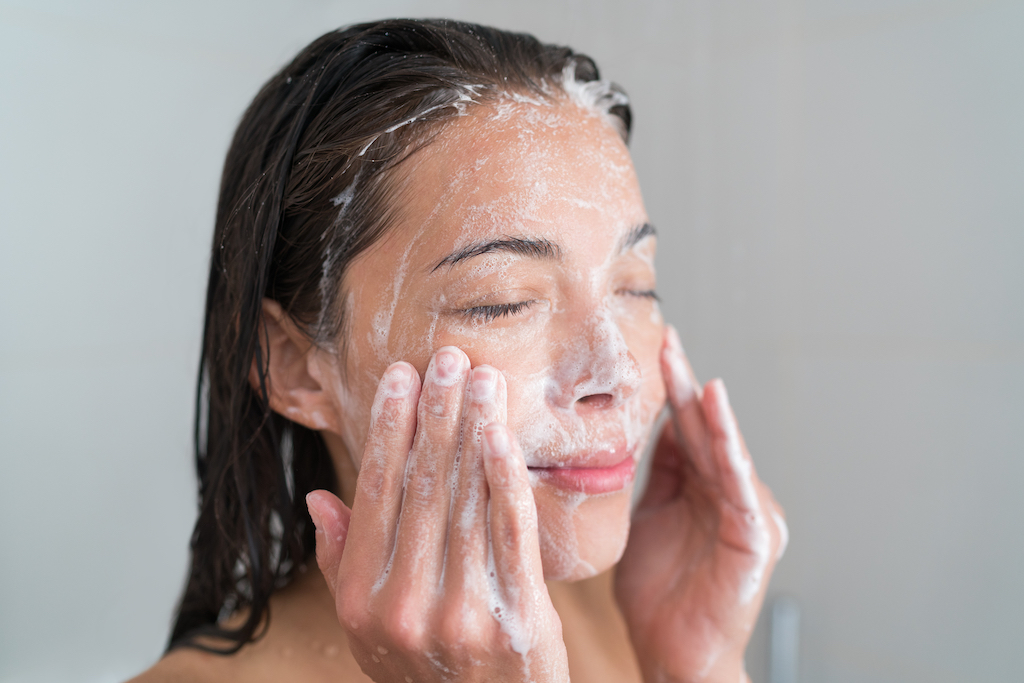Board-Certified Plastic Surgeon Dr. Alina Sholar was born in Port Arthur and grew up in Orange, TX, excelling in art, music, and science throughout her early school years. After receiving a full-tuition merit scholarship from the Nelda C. and H.J. Lutcher Stark Foundation in Orange, she received her BS degree in Biomedical Sciences with Magna Cum Laude honors from the College of Veterinary Medicine at Texas A&M University in December 1994. She did surgical research in an esteemed scientific laboratory at the University of Texas with her culminating in the publication in a prominent scientific journal, Perfusion. She was there awarded the prestigious Janet M. Glasgow Memorial Award and Achievement Citation for Women in Medicine, along with other meritorious honors and accolades like the Robert Wood Johnson Fellowship Award in medicine. Her medical artwork has been published in prestigious medical journals and textbooks such as the Annals of Plastic Surgery, Plastic & Reconstructive Surgery Journal, Annals of Surgical Oncology, and Cameron’s Current Surgical Therapy. Haute Beauty expert Dr. Sholar explains the importance of hydrated skin to avoid a buildup of cells, resulting in dry, dull, and flaky skin.
 Photo Credit: ShutterstockI know it flies in the face of mainstream beauty industry dogma, but exfoliation and peeling are passe’ and hydrated skin is better when it comes to healthy desquamation or shedding of surface dead skin cells.
Photo Credit: ShutterstockI know it flies in the face of mainstream beauty industry dogma, but exfoliation and peeling are passe’ and hydrated skin is better when it comes to healthy desquamation or shedding of surface dead skin cells.
Your skin’s barrier, called the Stratum Corneum (SC), is where epidermal keratinocytes reside at the end of their lifespan. They migrate up from their place of origin at the dermal-epidermal junction and make their way to the Stratum Corneum (SC). At the SC level, these cells lose their nucleus to become corneocytes and are densely packed within the lipid bilayer matrix that surrounds them, creating a protective barrier to prevent water loss and influx of irritants and pathogens. The cells also become “linked” together by proteins known as corneodesmosomes. They continue their journey as corneocytes from the bottom of the SC to the outer surface of the skin, where hydrolytic (water-dependent) enzymes break those corneodesmosome links, allowing a natural shedding of the cells. This is, however, only under healthy physiological conditions and an intact skin barrier.
So, a fully hydrated SC maintains healthy desquamation of those cells. However, when our skin is dehydrated, those crucial water-dependent enzymes are unable to break the links, which leads to incomplete desquamation and a buildup of cells, resulting dry, dull, flaky skin.
While we’ve been programmed to think that this should be remedied by applying chemical exfoliants like glycolic acid or scrubbing our faces til they are squeaky clean, we’re now facing an epidemic of over-exfoliation that leads to the premature release of corneocytes, causing massive amounts of water to evaporate through the epidermis, dehydrating the skin and inducing sensitization, acne and inflammation, telangiectasias (“broken capillaries”), and post-inflammatory hyperpigmentation. The result is chronic inflammation, which is pro-aging.
When the skin’s barrier is disrupted, it is no longer protected from environmental stressors and pollution and loses its ability to protect and defend itself. If perfumes, emulsifiers, preservatives, and mineral oils are added to skin care products, the skin can quickly become further compromised.
 Photo Credit: Courtesy of Dr. SholarCorneotherapy approaches skin care differently. Before any treatment or products are prescribed, a thorough examination of the condition of the lipid bi-layer barrier of the skin is undertaken. It is important during this process not to upset the protective barrier function and acid mantle, but rather give it what it needs to maintain harmony. Then, once the skin’s barrier is functioning as it should, and only then, will any advanced skincare products that it needs, work effectively. In other words, you are wasting your money on skincare products if your skin’s barrier is unhealthy.
Photo Credit: Courtesy of Dr. SholarCorneotherapy approaches skin care differently. Before any treatment or products are prescribed, a thorough examination of the condition of the lipid bi-layer barrier of the skin is undertaken. It is important during this process not to upset the protective barrier function and acid mantle, but rather give it what it needs to maintain harmony. Then, once the skin’s barrier is functioning as it should, and only then, will any advanced skincare products that it needs, work effectively. In other words, you are wasting your money on skincare products if your skin’s barrier is unhealthy.
Corneotherapy treatment is centered on recovery of the Stratum Corneum. The Stratum Corneum, once seen as a layer of ‘dead’ cells whose sole function was to provide an impermeable barrier, has suddenly come ‘alive’. While the stratum corneum consists of cells not capable of dividing and multiplying, it is far from being static tissue. Rather, it is dynamic and complex. The formation of this layer involves many highly orchestrated metabolic enzymatic functions. Myriads of studies over the last 50 years have shown with certainty that the stratum corneum has diverse and numerous functions all being essential for maintaining skin homeostasis.
Great advances in our knowledge of the structure and function of the stratum corneum, has led to the development of many innovative products that have not only improved the efficacy and safety of traditional remedies, but have made them more pleasant, convenient and easier to use. These innovations encompass new delivery systems to enhance penetration such as nanoparticles and liposomes. These have lessened the need for exfoliants- both physical and chemical in nature.
As Dr. Albert Kligman, the father of cosmeceuticals and the pioneer of corneotherapy, once said: “Whenever you see inflamed skin, regardless of its cause, it means that the stratum corneum is leaky and permeable. But, if you repair the stratum corneum, that tells the underlying tissues that they don’t have to keep reacting like there’s danger in the environment.”
The responsible use of chemical exfoliants can be quite beneficial when used judiciously, but I recommend you use them less often, and instead build a foundation of healthy cellular hydration first. This will normalize the desquamation process, further reducing your need to constantly exfoliate the “dead” skin away. A healthy, happy, and hydrated skin barrier will serve you better in the long run.
For more information, visit Dr. Brian A. Levine's social media:

























